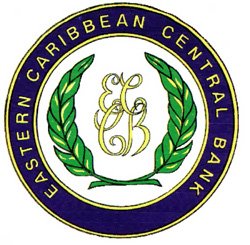
ECCB Monetary Council Predicts Growth
Basseterre, St. Kitts – Nevis
February 14, 2011 (CUOPM)
Economic activity in the Eastern Caribbean Currency Union (ECCU) is projected to expand in 2011 in most member countries with all major sectors, except agriculture, expected to contribute positively to growth.
“In 2012, all member countries are expected to record positive growth, consistent recovery in the international economy,” said the communiqué issued at the end of the 69th Meeting of the Monetary Council of the Eastern Caribbean Central Bank (ECCB), at the Eastern Caribbean Central Bank (ECCB) Headquarters in St Kitts and Nevis on 11 February 2011, under the chairmanship of the Honourable Nazim Burke, Minister for Finance, Grenada.
Council noted that economic activity in the ECCU contracted by 4.0 percent in the period January to September 2010 relative to the comparable period in 2009. This decline was driven mainly by a fall in investments in both public and private sectors and the continued impact of the financial crisis on government revenues, tourism and foreign direct investment.
Council noted that a moderate growth in economic activity is expected in the near-term with real growth of 1.9 percent projected for 2011 and extending into 2012 when activity is expected to increase by a further 2.8 percent.
“Notwithstanding, external demand from traditional trading partners is likely to remain subdued with tourist arrivals and private capital inflows in particular, projected to remain below pre-crisis levels. Inflationary pressures are expected, particularly if the recent increase in commodity prices is fed through to a generalised increase in consumer prices. The real effective exchange rate is forecast to remain at current levels,” said the end of meeting statement.
Council noted the monetary and credit conditions which were evident in the ECCU during the year to September 2010 and in particular the following, an increase in credit to the private sector by 2.0 percent, a faster rate than over the comparative period in 2009; the gradual easing of credit conditions which has resulted in lower nominal lending rates for some ECCU countries; a decline in real lending rates by 0.7 percent, primarily as a result of higher inflationary pressures; a marginal decline in liquidity in the banking system in the second half of 2010; a marginal decline in the ratio of gross foreign assets to demand liabilities from 95.9 to 95.6 percent the end of September 2009, well above the statutory level of 60 percent and the operational target of 80 percent.
“This decline can be largely attributed to the deceleration in reserve growth, partly due to the global financial crisis, and an expansion of domestic liabilities,” said the communiqué.
The Monetary Council also agreed that in the current environment, the focus of monetary policy remains the protection of the stability of the financial system and the maintenance of the credibility of the currency to support economic recovery.
“Therefore, policies geared towards alleviating macroeconomic and financial system stresses must also take into account the need to maintain sufficient foreign reserves to keep the currency peg credible. In the present circumstances, changes in the Central Bank’s administered interest rates, the Central Bank discount rate and the minimum savings deposit rate, are not likely to be effective in addressing the challenges in the financial system or the real sector,” said the communiqué.
Accordingly, Council directed that the Central Bank maintain the minimum savings deposit rate at 3.0 percent and the Central Bank’s discount rate at 6.5 percent.
Council received the Governor’s Report on Monetary and Credit Conditions in accordance with Article 7(2) of the Eastern Caribbean Central Bank Agreement 1983. The report outlined monetary and credit conditions in the ECCU over the 12 months ended September 2010 and the outlook for the near to medium term, in the context of global economic and financial developments.
Council applauded the recent ratification of the Treaty of Basseterre establishing the OECS Economic Union on 21 January 2011. Council agreed that the establishment of the Economic Union was a significant achievement and was a fundamental instrument in addressing the current challenges that confronted the region.
Council was apprised of developments in the global economy and in particular that global economic recovery had commenced with world output increasing at an annual rate of 5.8 percent in the first half of 2010, led by strong industrial production and a continued recovery in global trade. Notwithstanding, high unemployment and reduced household wealth have acted to restrain economic activity in industrialised nations.